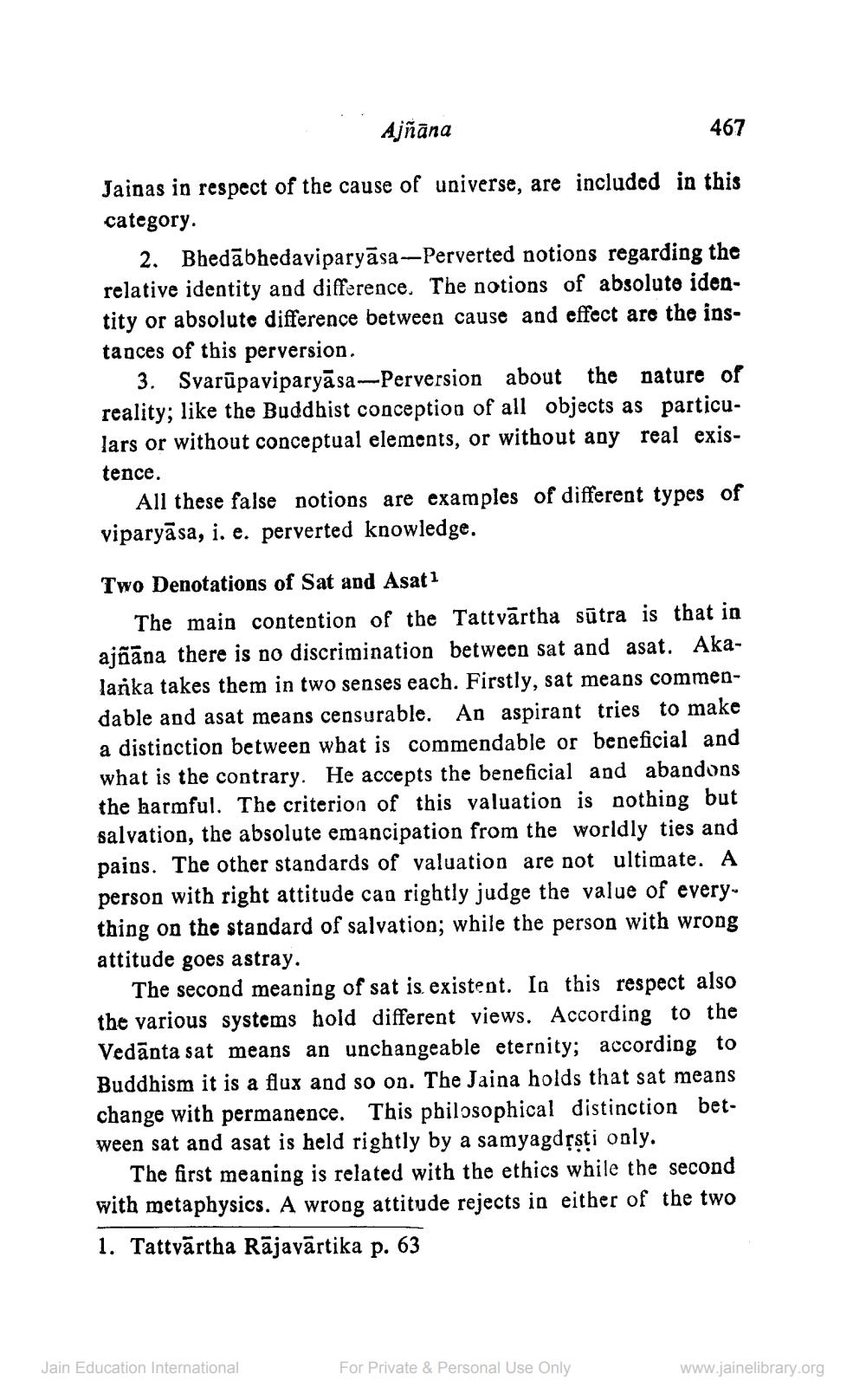________________
Ajñāna
467
Jainas in respect of the cause of universe, are included in this category.
2. Bhedābhedaviparyāsa--Perverted notions regarding the relative identity and difference. The notions of absolute identity or absolute difference between cause and effect are the instances of this perversion.
3. Svarūpaviparyāsa-Perversion about the nature of reality; like the Buddhist conception of all objects as particulars or without conceptual elements, or without any real existence.
All these false notions are examples of different types of viparyāsa, i. e. perverted knowledge.
Two Denotations of Sat and Asat1
The main contention of the Tattvārtha sūtra is that in ajñāna there is no discrimination between sat and asat. Akalarka takes them in two senses each. Firstly, sat means commendable and asat means censurable. An aspirant tries to make a distinction between what is commendable or beneficial and what is the contrary. He accepts the beneficial and abandons the harmful. The criterion of this valuation is nothing but salvation, the absolute emancipation from the worldly ties and pains. The other standards of valuation are not ultimate. A person with right attitude can rightly judge the value of everything on the standard of salvation; while the person with wrong attitude goes astray.
The second meaning of sat is existent. In this respect also the various systems hold different views. According to the Vedānta sat means an unchangeable eternity; according to Buddhism it is a flux and so on. The Jaina holds that sat means change with permanence. This philosophical distinction bet. ween sat and asat is held rightly by a samyagdřsti only.
The first meaning is related with the ethics while the second with metaphysics. A wrong attitude rejects in either of the two 1. Tattvārtha Rājavārtika p. 63
Jain Education International
For Private & Personal Use Only
www.jainelibrary.org




